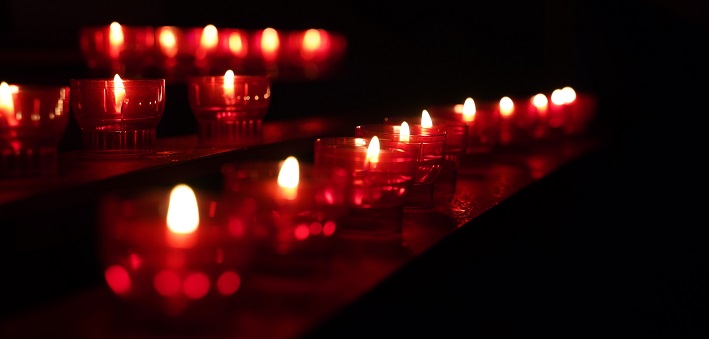Commentary on Isaiah 25:6-9
I have a confession to make: I am a little bit obsessed with the “Below Deck” series on Bravo. It’s not primarily because of the young adult drunken drama, but more about how the interaction of the guests and food represent various models of the “extravagant life.” For one group, that extravagance is represented by obscure delicacies like sea cucumber ovaries (a news flash for this biblical scholar), while other guests want “kids’ food” like chicken fingers and burgers. And when the request for the perfect food is not matched by the chef’s own visions, then the real fireworks happen! This interaction demonstrates that extravagant food is not about nourishment, but about culture, identity, and dreams.
Isaiah 25:6 demonstrates that this is not a new phenomenon. The menu the author has prepared would fit many a yachtie’s palate. Even if one can live without sucking marrow out of the bone, the act of doing so, fat dripping down one’s chin, is an enactment of deserved privilege. This text is not actually about food, either. It uses food to symbolize the radical change in fortune that the text envisions.
The most annoying guests on “Below Deck” are those who feel entitled to luxurious service and who feel that they have the authority to pronounce what that entails. This is not Isaiah’s audience. Although scholars debate the authorship or date of this particular chapter, the poem is set in a collection that reflects a particular historical context: the rise of Assyrian domination, which led to the destruction of the northern kingdom of Israel and subsequent siege of Jerusalem.
Siege warfare weaponized food scarcity by cutting off food supplies to the population within the city walls. Poems throughout the ancient Near East attest to this practice by their frequent references to cannibalism in such situations. Ezekiel likens the besieged city to a cooking pot with bits of body parts floating about. Isaiah 25 depicts it as a funeral mound; the whole city becomes a famished corpse shrouded for burial.
The “mountain” in the poem probably refers to Jerusalem, although it could be applied to almost any city, since they were usually built on raised ground. The elevation provided some natural advantage to people within the city who could throw things like mill stones (see Judges 10) onto the heads of the attackers. We know that Hezekiah, who was king at the time that the Assyrians besieged Jerusalem, had prepared for this attack by digging a tunnel through the caves under the city to reach a freshwater spring. Without access to fresh water, the city would have fallen.
This bit of poetry ascribes the siege to a personified Death in verse 8. In the myths of the surrounding Canaanites and northern Phoenicians, Death was a deity who swallowed its prey. His most notable victim was the storm god, Baal, who was god of fertility and life. While in the myth, Baal is saved by his irate sister, Anat, who slashes Death to pieces with a scythe; in this text, Yahweh out-destroys Death by swallowing the swallower.
The backdrop of the divine contest casts the feast in verse 6 as a victory feast. In mythic texts, which are clearly engaged and re-interpreted here, the victory of Yahweh/Baal results in the material flourishing of the human communities they protect. Rainwater flowing from Baal’s palace completes the cycle of threat and victory. For Isaiah, an overflowing table symbolizes economic and communal abundance.
This poem does not engage agricultural images of fertility, however, but remains focused on the urban mountain. This mountain was also the site of the temple to Yahweh and so it is not so much a political monarchy that is saved. It is the people’s identity as Yahweh’s congregation.
In place of fields fed by fresh water, the action that represents the change in fortune is the wiping away of salty tears. The reference to tears engages two communal activities that can now cease. First, mourning the dead was a communal action, often performed by a professional group of mourning women. The higher the status of the deceased, the more elaborate the mourning rituals. Second, the tears also reflect practices of ritual lamentation carried about the male priestly clergy at the temple. The practice of ritual lament is prominent throughout Mesopotamia and the Levant, especially laments over the destruction of cities. The book of Lamentations consists of five such laments for Jerusalem after it had been destroyed by the Babylonians.
The divine offer of a tissue then is more than just empathy. It functions as divine sanction to end the mourning because the laments have been heard. This section of the poetry, then, brackets the description of mortal combat with two images of safety and rejoicing.
The poem ends with the extension of that divine favor to “all the earth.” This would include all other nations and peoples, to be sure, but also all of creation, including animals and plants. This victory that has cosmic ramifications results in the overturning of mourning into sounds of rejoicing for the divine victor who has conquered the forces of death.
Unlike “Below Deck,” Isaiah 25 addresses an audience all too familiar with starvation and war crimes. Even if it was written much later than the events that inspired it, it reflects the communal trauma created by the march of empire through the land of Israel. That march of empire, replicated later by the Babylonians, Persians, Greeks and Romans, used food scarcity to create a path of mourning and destruction in its wake, just like we have seen lately in Afghanistan, Lebanon and the Gaza Strip. Isaiah 25 asks us to imagine a God who would take those crying, hopeless people and give them a permanent home on a luxurious yacht surrounded by every kind of extravagance.


November 7, 2021